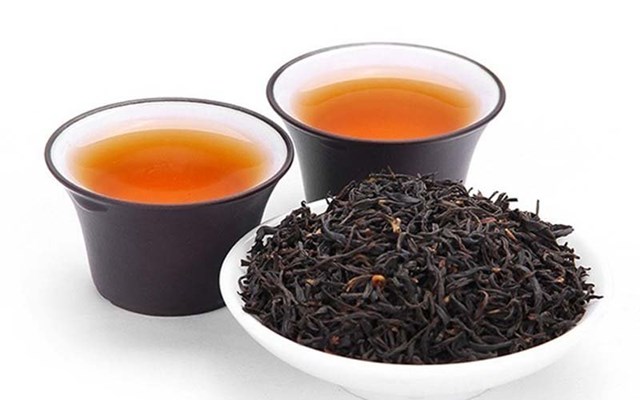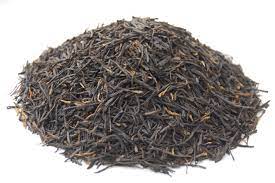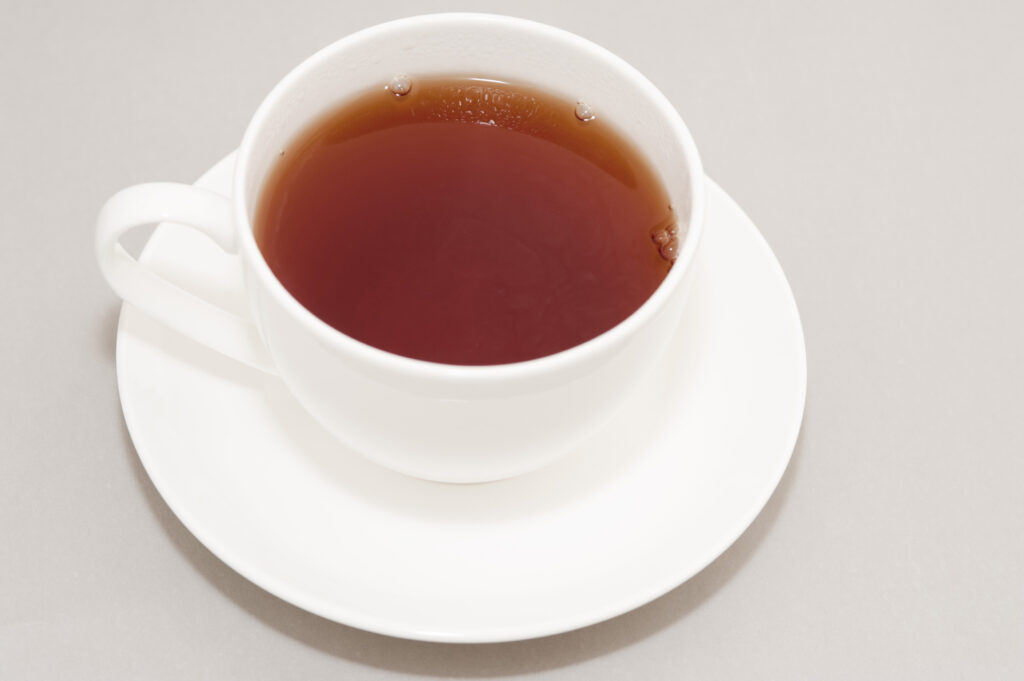Many people enjoy drinking tea on a daily basis. In fact, tea is the most consumed beverage in the world after water. While there are many different types of tea, black tea is one of the most popular.
Black tea is made from the leaves of the Camellia sinensis plant and is typically more oxidized than other types of tea. This gives black tea its characteristic dark color and robust flavor.
One of the main things that people are interested in when it comes to black tea is its caffeine content. In this article, we’ll take a look at the caffeine content of black tea and what factors can affect it.
What is Black Tea?
As we mentioned, black tea is made from the leaves of the Camellia sinensis plant. The leaves are typically subjected to a longer oxidization process than other types of tea, which gives black tea its characteristic flavor.
Black tea is usually harvested from the older leaves of the Camellia sinensis plant. This is one of the reasons why black tea has a higher caffeine content than other types of tea.

The Caffeine Content of Black Tea
The caffeine content of black tea can vary depending on a number of factors. However, on average, black tea contains around 14-70 mg of caffeine per cup (240 ml).
Factors That Can Affect the Caffeine Content of Black Tea
There are a few factors that can affect the caffeine content of black tea.
The first is the type of black tea. Second is the origin of the tea leaves. And third is the brewing method.
1. The type of black tea
There are many different types of black tea, and the caffeine content can vary between them.
2. The origin of the tea leaves
The location where the tea leaves are grown can also affect the caffeine content. Tea leaves grown at high altitudes tend to have higher levels of caffeine.
3. The brewing method
The way that black tea is brewed can also affect the caffeine content. For example, brewing for a shorter time will result in a tea with less caffeine.
How to Reduce the Caffeine Content of Black Tea
If you’re interested in reducing the caffeine content of black tea, there are a few things you can do.
First, you can choose a black tea that has been decaffeinated. Second, you can brew the tea for a shorter time. And third, you can add milk to the tea, which can help to reduce the caffeine content.
Conclusion
In conclusion, black tea contains a moderate amount of caffeine. The exact caffeine content can vary depending on the type of black tea, the origin of the tea leaves, and the brewing method.
If you’re interested in reducing the caffeine content of black tea, you can choose a decaffeinated variety, brew the tea for a shorter time, or add milk to the tea.
The history of black tea
The history of black tea is a long and fascinating one. For centuries, this type of tea has been enjoyed by people all over the world.
Black tea is made from the leaves of the Camellia sinensis plant. This plant is native to Asia, and has been cultivated there for centuries. The leaves are picked, then withered and rolled. This process oxidizes the leaves, which gives them their distinctive black color.
Black tea was first introduced to Europe in the 17th century, and quickly became popular. It was initially quite expensive, as it had to be imported from Asia. However, soon European countries began to cultivate their own Camellia sinensis plants, and the price of black tea began to decrease.
Today, black tea is enjoyed by people of all ages and cultures. It is one of the most popular types of tea in the world, and is enjoyed both hot and cold.

The caffeine content in black tea
When it comes to tea, there are different types and each type has its own caffeine content. Black tea is one of the most popular types of tea and it contains caffeine. The amount of caffeine in black tea can vary depending on how it is brewed. For example, if you brew your black tea for a longer period of time, it will have more caffeine.
Caffeine is a stimulant and it can have some positive effects on your body. It can help you to stay alert and it can also give you a boost of energy. However, too much caffeine can also be harmful. It can cause you to feel anxious and it can also disrupt your sleep.
If you are pregnant, you should limit your caffeine intake. Caffeine can cross the placenta and it can affect your baby. Too much caffeine can lead to a low birth weight and it can also increase the risk of miscarriage.
If you want to enjoy the benefits of black tea without the caffeine, you can try decaffeinated black tea. Decaffeinated black tea still contains some caffeine, but it is much lower than the regular black tea.
How to make the perfect cup of black tea
When it comes to making the perfect cup of black tea, there are a few key things to keep in mind. First, start with fresh, cold water. Bring your water to a gentle boil, then let it cool for about 30 seconds before pouring it over your tea leaves. This will help to extract the fullest flavor from your tea.
Next, use about 2 grams of tea leaves per cup of water. If you’re using loose tea leaves, this is about 1 teaspoon. If you’re using tea bags, 2 tea bags should be sufficient.
Brew your tea for 3-5 minutes, depending on your preference. The longer you brew, the stronger the flavor will be.
Finally, add milk and sugar to taste. Black tea is traditionally served with milk and sugar, but feel free to adjust the amount to your liking.
With these simple tips, you’ll be able to make a delicious cup of black tea that’s perfect every time.
The different types of black tea
There are many different types of black tea, each with its own distinct flavor and aroma. The most common types of black tea are Darjeeling, Assam, Ceylon, and Kenyan.
Darjeeling black tea is grown in the foothills of the Himalayan mountains in India. The tea leaves are picked by hand and then carefully rolled and fermented. This process gives Darjeeling tea its unique flavor and aroma.
Assam black tea is grown in the Assam region of India. The tea leaves are picked and then fermented in a process that is similar to Darjeeling tea. Assam tea is known for its strong flavor and full-bodied aroma.
Ceylon black tea is grown in Sri Lanka. The tea leaves are picked and then fermented in a process that is similar to Darjeeling and Assam tea. Ceylon tea is known for its light, delicate flavor.
Kenyan black tea is grown in the highlands of Kenya. The tea leaves are picked and then fermented in a process that is similar to Darjeeling and Assam tea. Kenyan tea is known for its strong, robust flavor.
The health benefits of black tea
When it comes to tea, there are many different types and flavors to choose from. But one type of tea that is often overlooked is black tea. Black tea is a type of tea that is made from the leaves of the Camellia sinensis plant. The leaves are allowed to oxidize, which gives the tea its distinctive black color.
Black tea has many health benefits that make it a great choice for those looking to improve their overall health. For one, black tea is a good source of antioxidants. These antioxidants can help to protect the body against damage from free radicals. Free radicals are unstable molecules that can cause cell damage, and have been linked to the development of various chronic diseases.
In addition to being a good source of antioxidants, black tea can also help to boost heart health. Studies have shown that black tea can help to lower cholesterol levels and blood pressure, both of which are risk factors for heart disease. Black tea can also help to reduce the risk of stroke.
So, if you’re looking for a healthy tea to add to your diet, black tea is a great option. Not only is it good for your overall health, but it also has a delicious, rich flavor that is sure to please.
The side effects of black tea
Black tea is one of the most popular beverages in the world, and it has numerous health benefits. However, like all things, black tea also has some side effects that you should be aware of.
One of the most common side effects of black tea is an upset stomach. This is usually due to the fact that black tea contains caffeine, which can be a trigger for stomach problems. If you are prone to stomach issues, you may want to limit your intake of black tea, or switch to a decaffeinated variety.
Another potential side effect of black tea is that it can interfere with iron absorption. This is because black tea contains tannins, which can bind to iron and make it more difficult for the body to absorb. If you are iron-deficient, you may want to avoid black tea, or at least drink it in moderation.
Finally, black tea can also cause dehydration. This is because it is a diuretic, which means it helps to expel water from the body. If you are dehydrated, you may experience headaches, fatigue, and dry skin. Therefore, it is important to drink plenty of water when you are consuming black tea.
While black tea does have some potential side effects, it is still a healthy beverage choice. Just be sure to drink it in moderation and stay hydrated.

I’m Brian Danny Max, a chef and a writer at cookingtom.com. I’m here to talk about food and cooking, and to share some of my favorite recipes with you all! I’ve been interested in food and cooking since I was a child. My parents are both great cooks, and they taught me a lot about the kitchen. I’ve been cooking professionally for about 10 years now, and I’ve loved every minute of it! I specialize in healthy, flavorful recipes that are easy to make at home. I believe that anyone can cook a delicious meal, no matter their skill level. I’m here to help you learn how to cook, and to show you that it’s not as difficult as you might think! I hope you’ll check out my blog and my recipes, and I look forward to hearing from you!

